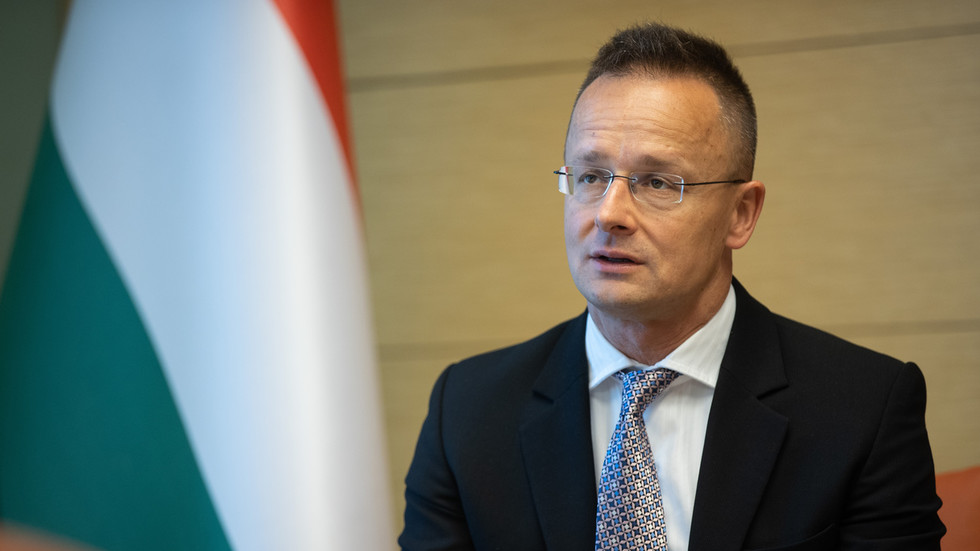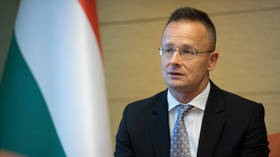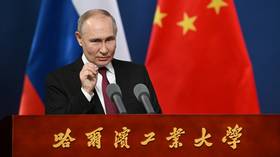
Hungary has blocked a document that supported Zelensky’s “peace plan” while ignoring other proposals, its foreign minister has said

Hungarian Foreign Minister Peter Szijjarto. © Omer Taha Cetin/Getty Images
Hungary has vetoed a Council of Europe resolution on Ukraine because it recognized only one peace plan, the so-called “peace formula” proposed by Ukrainian President Vladimir Zelensky, Foreign Minister Peter Szijjarto said on Friday.
Zelensky’s roadmap to resolve the crisis, which he has been promoting since 2022, calls for a complete withdrawal of Russian forces from all territories Ukraine considers its own, for Moscow to pay reparations, and for a war crimes tribunal. Russia has rejected the proposals as “unrealistic” and a sign of Kiev’s unwillingness to seek a diplomatic solution to the conflict.
“Today the Council wanted to adopt a resolution recognizing only President Zelensky’s peace plan as a peace formula that should be considered and supported. This is unacceptable for us,” Szijjarto wrote on Facebook.
Instead of an “imaginary nuclear war,” “we all need real peace talks,” which are only possible with both sides in the conflict “sitting at the table” Szijjarto said.
Next month, Switzerland is expected to host a summit on Zelensky’s proposed roadmap for ending the conflict with Russia. Switzerland has sent out invitations to over 160 countries, including members of the G7, G20, BRICS, and EU. Russia, however, has not been invited to the talks.

Szijjarto noted that other countries have also proposed scenarios for a diplomatic resolution to the conflict that are “no worse than those of Ukraine’s president.” A number of alternative peace plans had previously been put forward, including proposals by China, Brazil and South Africa.
“I asked to include other peace plans in the Council of Europe resolution. This was rejected by the majority. That’s why I vetoed it so there wouldn’t be a Council resolution,” Szijjarto explained.
China has been promoting since last year a peace formula consisting of 12 points, including the cessation of hostilities, a demand for compliance with international law, the rejection of the ‘Cold War’ mentality, and mutual respect for national security concerns.
Russian President Vladimir Putin said Beijing’s initiative showed “the genuine desire… to help stabilize the situation” in the region.
Speaking to journalists on Friday, he dismissed Kiev’s plan, which does not take into account the “realities on the ground.” Putin reiterated Moscow’s perception of the upcoming Swiss event as a mere ruse by Kiev and the West. The president also emphasized that Moscow remains ready for peace talks that would consider Russian interests.




